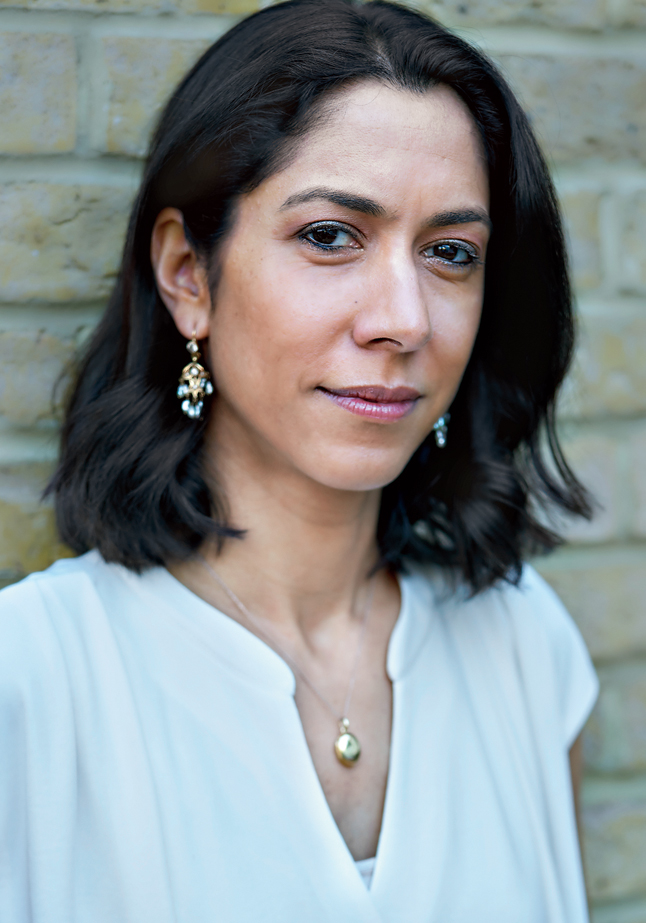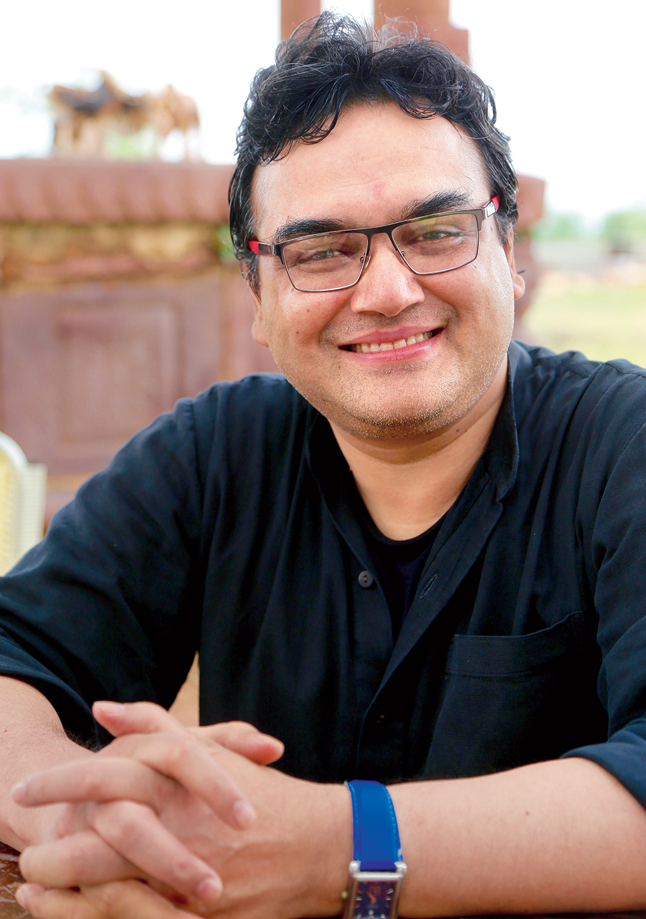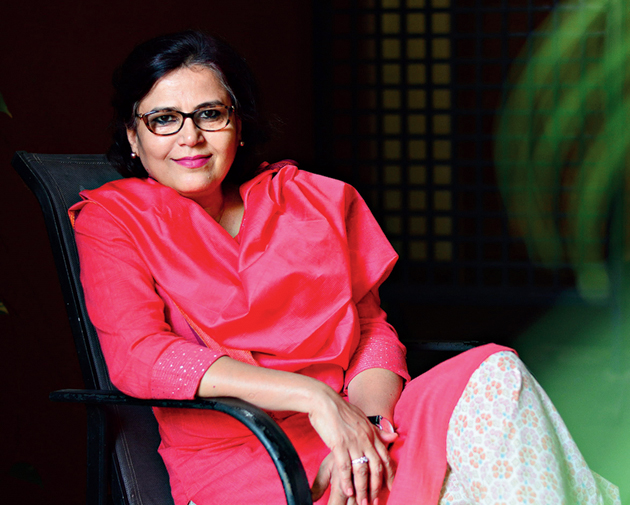Rakhshanda Jalil, author of The Great War, Bloomsbury
These are strange times. I find I am unable to concentrate. I have a fat book to review but find myself quite unable to read something new with any degree of absorption. Two books that stand me in good stead for the simple reason that one can dip into them without actually having to read them from cover to cover and also because one doesn’t have to read them with any effort are: Palgrave’s Golden Treasury of English Verse and the collected works of the Urdu poet, Faiz Ahmad Faiz, entitled Saarey Sukhan Hamarey.
I used to have a battered, torn copy of Palgrave’s that I had bought from some second-hand bookshop; it was literally coming apart at the seams. So, some friends pooled in money and gave me a brand new Palgrave’s on a birthday several years ago. However, I got my old copy bound and its spine stitched back and still prefer it to the new book. The memory of so many happy, past readings clings to it and adds another layer of pleasure each time I open that book. It’s a happy book to hold in my hands and these days every little joy is to be hoarded and treasured.
As for the collected works by Faiz, it is like meeting old friends each time I open it and renewing the acquaintance of some friends I have not met for some time. There is almost equal pleasure in meeting both — the old friends and the slightly forgotten acquaintances. The amazing quality of Faiz is that I invariably catch my breath
re-reading something that sounds so topical, so immediate, so meaningful for our times. I like the mingling of shabaab and inquilab, of romance and revolution — a heady brew that only Faiz could pour.

Sumana Roy Sourced by the Telegraph
Sumana Roy, author of My Mother’s Lover and Other Stories, Bloomsbury
The very first time I realised that I had become suspicious of myself, I turned to a book that I had begun reading a few months ago. To be suspicious about everything outside oneself might be a natural condition, one associated with self-preservation, but to be suspicious of one’s own body felt like a violation, a breach of contract by life. I was now being tutored — and gradually conditioned — to reject my hands, their nakedness. Many years ago, someone I loved had asked me about the most private part of myself. ‘My heart,’ I’d wanted to blurt out, but I eventually settled on my hands as the answer — the action of our hands was part of the continuation of our private selves. At that moment I also became aware of the unconditional nakedness of our hands — now even my phone seeks that it opens to my touch alone, not to my gloved fingers.
But now, all of a sudden, life was censoring my hands. I wasn’t allowed to touch my face with my fingers, I couldn’t touch my lips absentmindedly any more, I wasn’t allowed to rub my eyes. It wasn’t the virus that I needed to be careful of but myself. Touch — that would be fatal. My thoughts turned towards a book that its translator had gifted me a few months ago: Raghavanka’s The Life of Harishchandra, now available to us through the Murti Classical Library in Vanamala Viswanatha’s translation. It was my favourite section in the 13th century Kannada text. When the king refuses to marry the holatis to protect caste purity, the namika women say — “The ears that enjoyed every note of our music are not defiled; the eyes that feasted on our shapely form are not defiled; the mouth that acclaimed our art is not defiled; the nose that smelled the fragrance of our bodies wafted by the gentle wind is not defiled. How is it that only our touch is defiling? How is it that, among the five composite senses, one is superior and the other four inferior?”
I saw in them two things — a critique of untouchability, far ahead of its time, particularly because it had come from a tradition of love, an argument that was as much intellectual as it was emotional, a tradition that would gradually be eroded, replaced as it would be by a limited understanding and practice of the tradition of rationalism. The second had to do with the questioning of hierarchy — we like to question social hierarchies, even hierarchies created by biology, but here was a hierarchy that we had created within ourselves. I could love a person — listen to the songs they sang, smell their body from some distance, look at them in admiration, taste the food they had cooked, but only touching them would cause disruption, both social and moral. Touch was ‘superior and the other four inferior’.
This hierarchy among the senses always takes me to the French thinker Michel Serres and his book The Five Senses: A Philosophy of Mingled Bodies. “The linguistic school is a school with no sense of smell, and no taste,” Serres had once said in an interview. The human “knows how to taste. Sagacious: he who knows how to smell. All of these things are vanishing under the weight of logic and grammar.” In Genesis, a book written before this one, Serres says this about the hand and about touch: “The hand is no longer a hand when it has taken hold of the hammer, it is the hammer itself… it can make itself into a pincer, it can be fist and hammer, cupped palm and goblet, tentacle and suction cup, claw, and soft touch. So what is a hand? It is not an organ, it is a faculty, a capacity for doing, for becoming claw or paw, weapon or compendium. It is a naked faculty…. We live by bare hands.”
I turn the page with my naked hand, unsure of contagion and its consequences — learning, too, is contagious, I tell myself, aware of the relay race of education. I read about the skin — “Contingency means mutual touching: world and body meet and caress in the skin” — and pause. Serres, in calling for the return of the five senses into language, had refused to make a distinction between genres, for to believe in genre is to privilege one faculty over the other, even as we are aware that all our five senses work together.
As I read these two books, one from the 13th century and the other from the 20th, both connected only by the spittle of my imagination, I think of the coronavirus and its magisterial anthropomorphic urge — how this virus, not quite a living thing, has made us untouchables, to each other and also to ourselves. This, perhaps, is also a kind of revolution.

Kavita Puri Sourced by the Telegraph
Kavita Puri, author of Partition Voices, Bloomsbury
We are all living through a historic moment, while getting on with the minutiae of everyday existence. Studs Terkel’s Hard Times is the definitive oral history of the Great Depression. He travelled across America in the 1960s, recording memories across the social spectrum. I wanted to be reminded of the collision of ordinary life and an extraordinary event; how people survived, the detail of their memories. It reads like a novel with the most incredible characters, and Terkel is the quiet observer gently guiding them along. I suppose I am already thinking how the next generation will record the times we are living through and what stories will be told.
I work in news and current affairs, and so right now when I read I want to switch off from today’s harsh reality (which can feel more outlandish than fiction). I seek solace in words of beauty and find myself returning to old favourites. Anne Michael’s Fugitive Pieces is an exquisitely written novel. You read a sentence, then want to re-read it straight away, and slowly, to let the words sink into you. It tells the story of a Jewish boy who is rescued by a Greek geologist in Nazi-occupied Poland. He is the only survivor of his village. Theirs is a tender relationship, and Athos becomes the guardian for Jakob, who, when he grows up, becomes a poet. The second part of the book centres on a Canadian academic, born to Holocaust survivors, who is an admirer of Jakob’s poetry and goes to Greece to retrieve his papers. The book explores themes I am fascinated with: the shape of memory, loss, coming to terms with your own trauma and that of your parents, and ultimately, the balm of love. It is both a shattering book that leaves you drained as well as leaving you feeling hopeful and renewed.
I am also delving into new writing. I’ve just finished Greenwood, by another Canadian writer, Michael Christie. The narrative is cleverly constructed around the years of the rings of a tree, and the novel moves back in time and into the future. It is centred on one family whose surname is Greenwood, which is also the name of an island off British Columbia. It is hugely ambitious — an epic family saga full of dysfunction, crimes and secrets that spans over a century. It is also about trees, forests and nature. Like families their roots are bound together, interlinked, sometimes messily. “Every tree is held up by its history, the very bones of its ancestors.”
So too are families, which are “held up by unseen layers, girded by lives that came before our own.” It is both an ancient story of family and a story of our time — how we respect our land. The question remains open — will we cherish or destroy it. As we think of what kind of world we want to live in after the pandemic, it could not be more pertinent.

Diksha Basu Sourced by the Telegraph
Diksha Basu, author of Destination Wedding, Bloomsbury
I’m in lockdown in Mumbai in a small apartment with two young children and no help and ongoing work deadlines so I am reading much less than usual, in stolen moments of time. One of the nice things about having less reading time is that I’m reading more poetry than I usually do — Mary Ruefle is my poet of choice at the moment.
I’m dipping in and out of my familiar Wodehouse collection because I know those books so well I don’t need to read them from start to finish; I can open any page and read and laugh and get momentary respite from the horrors of the world.
In non-fiction, I’m reading a lot of tweets. And I’m also reading sociologist Sanjay Srivastava’s book Entangled Urbanism. I write a lot about Delhi and its complexities in my novels and Srivastava’s book is helping me understand the intricacies and history of the development of the city.
My father was in Mumbai when the lockdown was announced and, fortunately for us, got stuck here. He is reading my copy of The Anarchy by William Dalrymple. It’s a bit of a problem because he’s enjoying it so much that I find he’s disappeared into his room to read it when he’s supposed to be in charge of the children. But I don’t blame him. My husband and I read The Anarchy a few months back and are revisiting it in conversation as my father reads it and we discuss it in the evenings.
I’m reading a lot of children’s books in lockdown — far more than I want to be. I wish I could enthusiastically say I love children’s books but they do get rather dull rather quickly. My children are very young — two-and-a-half and one-and-a-half — so they know something has changed but they can’t understand the pandemic of course. All they know is that our lives have suddenly become much smaller, with no outings to the park, no school, no playdates, no travel. One of the books I’m turning to a lot with them is a children’s book called Kuma-Kuma Chan, The Little Bear by the Japanese writer/illustrator Kazue Takahashi. It’s a beautiful, quiet, sparse, meditative book about a bear who lives alone in the mountains and eats salad and cleans his home and stares at the clouds.
Other than that, I wish I could tell you I’m using this time to read the big classics but I’m not. I don’t have the mental bandwidth for that right now. I am too worried about the state of the world and the scale of suffering. I am struggling to give my brain the space it needs to read a difficult book so I will confess to you that I’m also reading Jessica Simpson’s memoir, Open Book.

Sudeep Sen Sourced by the Telegraph
Sudeep Sen, author of Kaifi Azmi, Bloomsbury
Losing the Habit of Speech, Regaining the Habit of Reading “I am losing the habit of speech. / Language itself grows strange. / I forget the names of all I knew. / Colour, shape and texture blend. / Those things there, what are they called? / Those people, what is it that they do? / How do those little words go / Sense to make situations of? / Soon, I will only meow / or bark / or quack. / My tweets will all be bird-like.” Robert Alan Jamieson in this new poem eloquently sums up what it is like to be in isolation in these times of crisis, how the absence of people forces us to be silent, how the lack of industrial/urban activity allows nature to reclaim its unpolluted spaces.
Apart from my usual reading/writing regimen, I’m also sorting my books/papers — reshelving my extensive library country-wise, genre-wise, alphabetically. One of the joys is rediscovering books I’d liked, with pencil notes that I’d once scribbled, and newspaper review clippings that I’d inserted between the pages — and if I am lucky enough, even handwritten correspondence with the author.
Amitav Ghosh’s The Great Derangement (Penguin) tops my list for its urgency and intelligence, for its war cry to tackle what is perhaps the most serious issue that faces our world. Everything that we are going through now is in some way related to the anthropocene. Ghosh writes, “Climate change poses a powerful challenge to what is perhaps the single most important political conception of the modern era: the idea of freedom, which is central not only to contemporary politics but also to the humanities, the arts and literature.” This must reread is a wise, elegant book.
Pico Iyer is another favourite writer whose every book I devour. The Art of Stillness (Ted) can’t be more appropriate. But I opted for his newest, A Beginner’s Guide to Japan (Penguin), a beautifully articulated fable — its spare haiku-like poetic prose raising the art of minimalism to a new height. As they say in the temples of Kyoto, “The opposite of a great truth is also true.” This book is set in six sections with sub-titles such as ‘Several Grains of Salt’, ‘Empire of Smiles’, ‘The Bridge of Hesitation’, and ‘The Other Side of Sorrow’. Iyer’s quiet and sharp meditations are a perfect tonic for our mind/soul. So unsurprisingly, the book opens with a Simone Weil epigraph: “Attention, taken to its highest degree, is the same thing as prayer.”
Siddhartha Mukherjee, at a young age, has contributed significantly to the art of stylish medical/science writing, highlighting the microcosm that binds complex neural energies in our body and mind. People know his gargantuan prize-winning books, The Emperor of All Maladies, and The Gene — but I urge you to reread The Laws of Medicine (Ted), a delicate treatise that packs an equally potent power. This boutique book, quoting J.K. Rowling and John Locke to anchor his diary-like journaling and thesis, is beautifully written. And like his big books — this is equally thought provoking and informative, as it is human. Appropriately, do read Abraham Verghese’s 1994 book, My Own Country (Phoenix), which is not just an ordinary account of his patients, but a memoir of how his patients changed the way he looked at the disease and life. It is deeply moving and elegantly written.
Commissioned to write this piece, I assumed I’d talk about poetry/poets I’ve admired or rereading — Milton, the Symbolist Poets, Paz, Neruda, Celan, Walcott, Brodsky and Heaney. So I’m surprised that I ended up recommending non-fiction. Perhaps in the above books, the strict dividing lines between fiction, non-fiction and poetry are blurred. And as in any good piece of writing or book, it is the content, language and its emotional intelligence that ultimately matters. To end, I quote from my new poem, Love in the Time of Corona: “… Mood-swings in sanitised / quarantine — self- isolation, imposed — uncontained virus, viral. / When shall we sing our dream’s epiphanies? / …. My lungs heave, slow-grating metallic-crackles / struggle to escape the filigreed windpipes — / I persist in my prayers. I’m afraid of Him. / Hope, heed, heal — our song, in present tense.”










